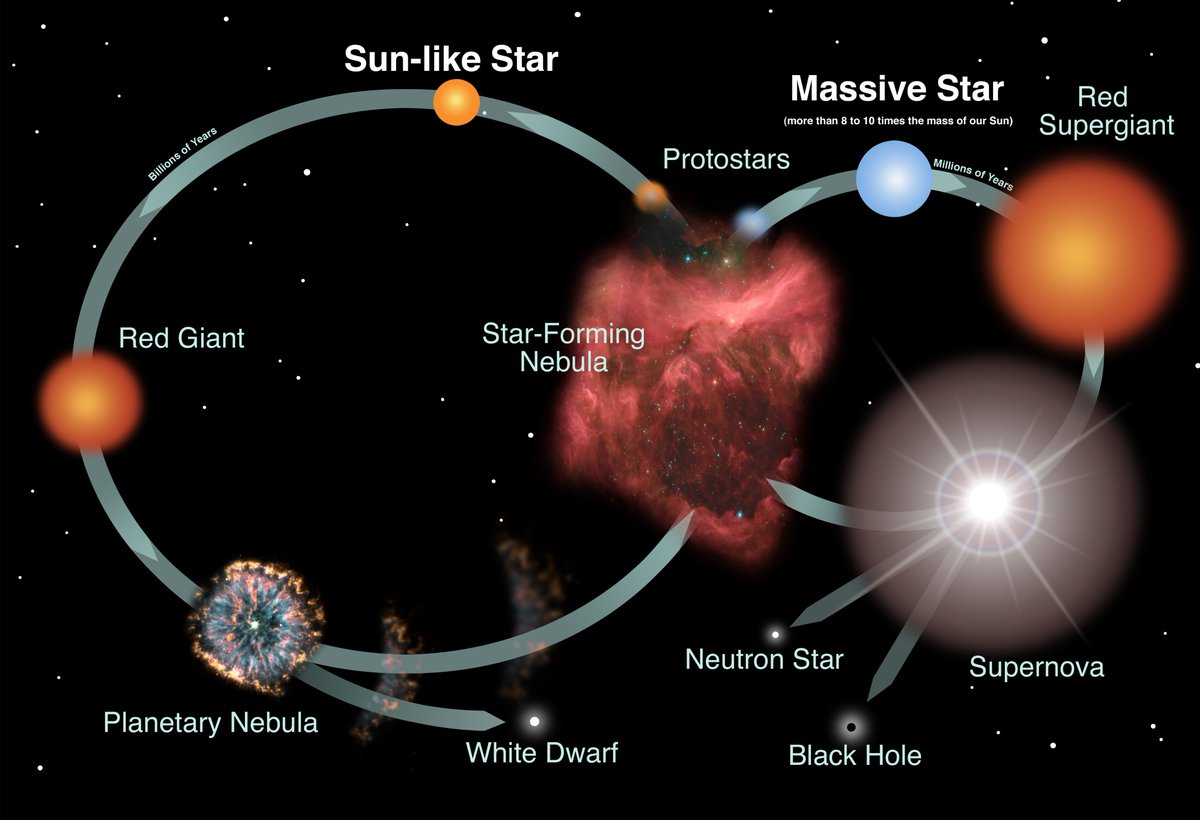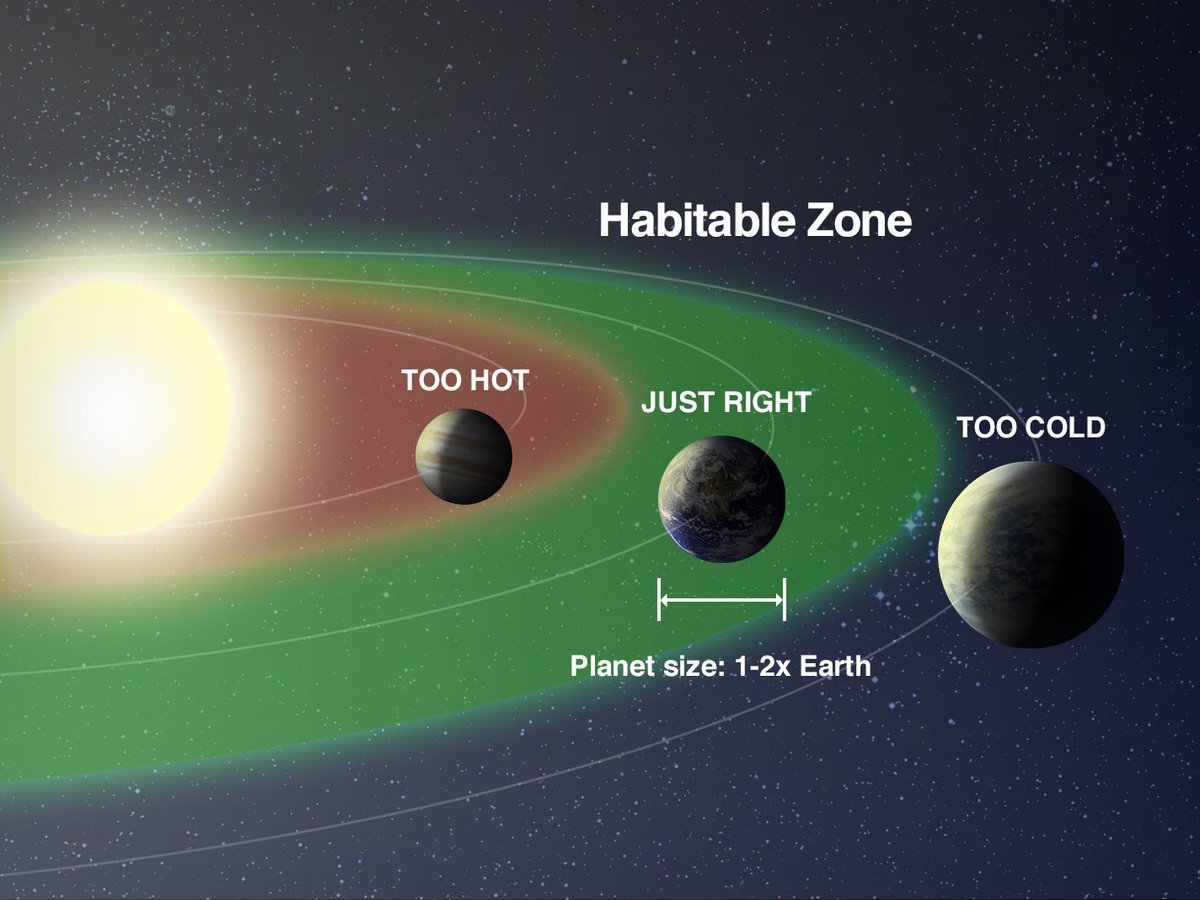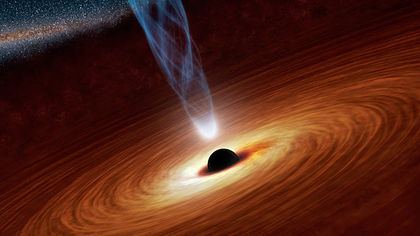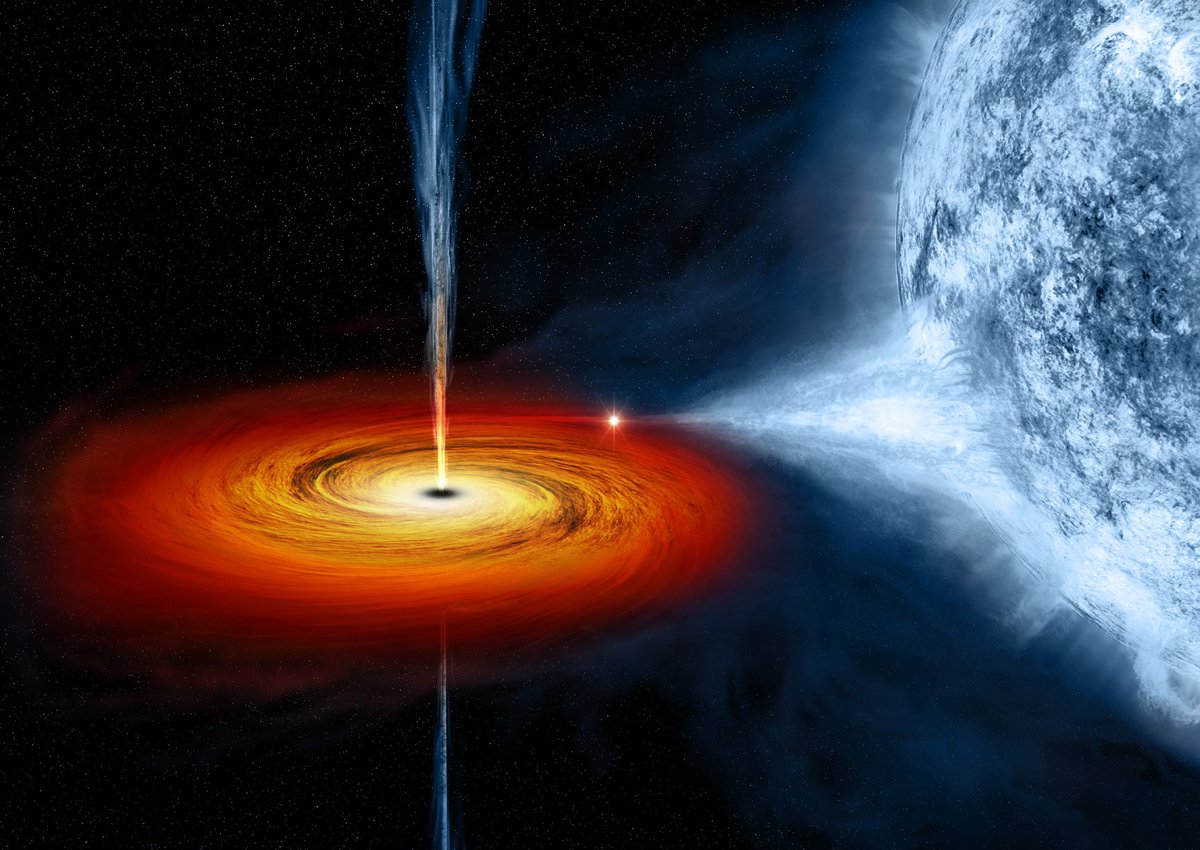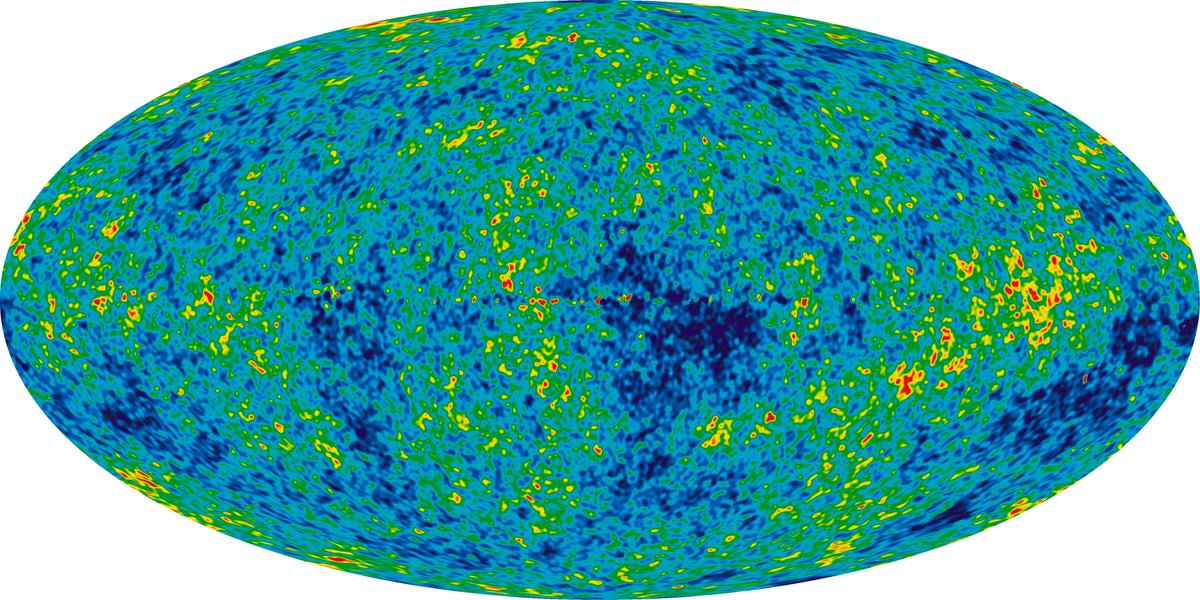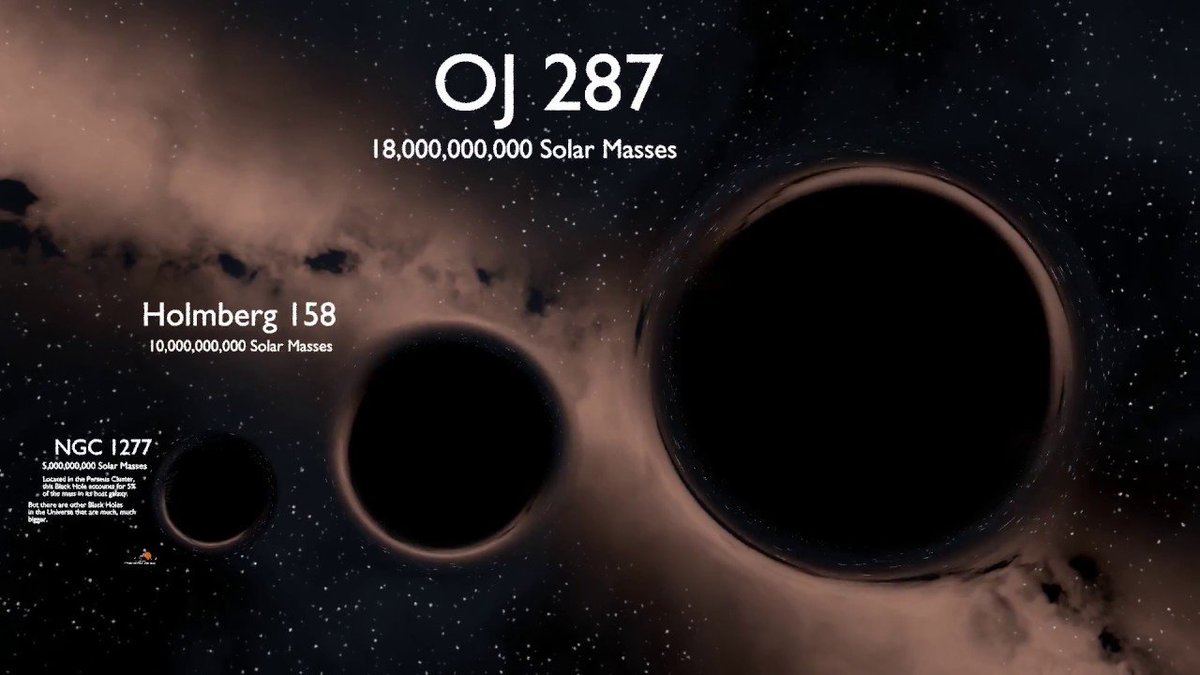What if Earth orbited a black hole?
(1)
(1)
Let me begin by saying that the title is a bit misleading: I mostly talk about the possibility of planets orbiting black holes and if they can even be habitable, this can still be applied to Earth.
(2)
(2)
Black holes. Giants in space that consume anything that comes in their path. Not even light (the fastest moving thing in the universe) can escape their grasp.
Our planet orbits a main sequence star (Type G), which is too small to become a black hole when it uses up its fuel.
(3)
Our planet orbits a main sequence star (Type G), which is too small to become a black hole when it uses up its fuel.
(3)
So how do black holes form? (Keep in mind I& #39;m not an astrophysicist, but I still find this stuff interesting).
Essentially, black holes form when a massive star collapses in on itself. When a large star dies, it causes a supernova explosion, and black holes form from...
(4)
Essentially, black holes form when a massive star collapses in on itself. When a large star dies, it causes a supernova explosion, and black holes form from...
(4)
these remnants.
Black holes are essentially points that have VERY large mass condensed in a very small point. (Small is relative here, since black holes are massive, but you get the point). You& #39;re taking the mass of a giant star and condensing it all down to a point...
(5)
Black holes are essentially points that have VERY large mass condensed in a very small point. (Small is relative here, since black holes are massive, but you get the point). You& #39;re taking the mass of a giant star and condensing it all down to a point...
(5)
the size of a city.
Depending on the size of stars, they will all suffer different fates at the end of their life cycles. Here& #39;s a helpful diagram that shows what happens to each type of star when it dies:
(6)
Depending on the size of stars, they will all suffer different fates at the end of their life cycles. Here& #39;s a helpful diagram that shows what happens to each type of star when it dies:
(6)
As you can see from the diagram above, our Sun is too small to suffer the fate of becoming a black hole. It will just become a Red Giant and then a white dwarf.
But the real question is.... if our Sun was large enough to become a black hole at the end of its lifetime...
(7)
But the real question is.... if our Sun was large enough to become a black hole at the end of its lifetime...
(7)
(and Earth wasn& #39;t destroyed by it), could Earth still orbit it (or any planet in general), AND would Earth still be habitable? Could a habitable planet orbit a black hole?
(8)
(8)
Firstly, let& #39;s discuss the possibility of planets even orbiting black holes. The short answer is yes, planets can orbit black holes. They have a gravitational pull just like any other star. This means that theoretically there could be planets out there that are orbiting...
(9)
(9)
black holes, however, if we stop and think about what black holes REALLY are (the remnants of huge stars that ran out of fuel and went supernova), the chances of any planet surviving this explosion would be slim to none.
(But this is SCIENCE, so let& #39;s think about it)
(10)
(But this is SCIENCE, so let& #39;s think about it)
(10)
Earth orbits the Sun in the habitable zone. I have mentioned this multiple times in some of my previous posts, but essentially, the habitable zone is what allows for liquid water to exist on the surface of our planet, thus allowing life to exist and thrive as well. These...
(11)
(11)
factors depend on the output of energy from the star and the planet& #39;s distance from the star. (Really, we just happened to be lucky). Theoretically, a planet could have a "habitable zone" around a black hole, it just wouldn& #39;t be getting its energy from light from a star.
(12)
(12)
In the case of a black hole, the planet could potentially receive light from the accretion disks (the disks of matter and gas that form around large black holes).
(13)
(13)
Scientists have yet to find evidence of planets orbiting black holes, but if they did, could they still be habitable? We know if any object gets too close to a black hole, it will immediately get sucked in and be unable to escape, trapped forever in one of these giant...
(14)
(14)
cosmic vacuums. However, if the black hole is spinning fast, it is possible for close, stable orbits to exist. (Another caveat to this is that the black hole would have to be spinning VERY close to the speed of light in order for any planet to be sufficiently close to it...
(15)
(15)
to receive energy from the Cosmic Microwave Background (CMB). Why is the CMB important? It& #39;s the leftover radiation from the Big Bang that is found throughout the universe.
According to Astrophysicist Pavel Bakala of the Silesian University in Opava and colleagues,"The...
(16)
According to Astrophysicist Pavel Bakala of the Silesian University in Opava and colleagues,"The...
(16)
CMB would appear as a bright star on the edge of the black hole& #39;s shadow" ( http://sciencemag.org"> http://sciencemag.org ). This is due to the massive gravitational pull from the black hole. It would compress the radiation into optimal wavelengths and funnel it into a narrow beam.
(17)
(17)
Additionally, let& #39;s think about how big this black hole would really need to be. Black holes vary in size: some can be a few times the mass of the Sun, whereas others can be millions or billions of times the mass of the Sun (think of black holes at the centers of galaxies...
(18)
(18)
for instance). Black holes this size (supermassive) tend to rip planets and stars apart from their gravitational pulls, but if a planet were to orbit around the outside, it would be safe, since it wouldn& #39;t get pulled apart until reaching the black hole& #39;s event horizon.
(19)
(19)
The researchers also stated that the space around the black hole would need to be mostly empty, since black holes emit Hawking radiation, which would destroy any nearby planet instantaneously.
(20)
(20)
Unfortunately, here comes the disappointing part: it& #39;s really not possible for life to thrive on such a planet if it were to exist.
"Researchers in Japan hypothesized that planets could theoretically form in the cold disk of gas and dust that exists at a distance around...
(21)
"Researchers in Japan hypothesized that planets could theoretically form in the cold disk of gas and dust that exists at a distance around...
(21)
a galactic center, but it just doesn& #39;t seem likely that a planet could have a stable orbit near the edge of an active black hole" ( http://sciencemag.org"> http://sciencemag.org ).
Due to how powerful black holes are, most planets and stars just wouldn& #39;t be able to survive the blasts of UV light...
(22)
Due to how powerful black holes are, most planets and stars just wouldn& #39;t be able to survive the blasts of UV light...
(22)
as the black hole grows when it consumes the gas and dust around it.
If such planets DO exist, it would be extremely difficult to detect them. A planet that passes in front of a black hole is going to be very hard to see, due to light not even being able to escape from them.
(23)
If such planets DO exist, it would be extremely difficult to detect them. A planet that passes in front of a black hole is going to be very hard to see, due to light not even being able to escape from them.
(23)
That& #39;s the end of the thread! Let me know your thoughts and PLEASE, PLEASE check out the blog post! I had SO much more to say, but not enough characters to say it with. As always, leave suggestions for topics I could write threads on!  https://abs.twimg.com/emoji/v2/... draggable="false" alt="✨" title="Funken" aria-label="Emoji: Funken"> https://jaz21693.wixsite.com/mysite/post/what-if-earth-orbited-a-black-hole">https://jaz21693.wixsite.com/mysite/po...
https://abs.twimg.com/emoji/v2/... draggable="false" alt="✨" title="Funken" aria-label="Emoji: Funken"> https://jaz21693.wixsite.com/mysite/post/what-if-earth-orbited-a-black-hole">https://jaz21693.wixsite.com/mysite/po...
Poll: Would you want to live on a planet that orbits a black hole?

 Read on Twitter
Read on Twitter